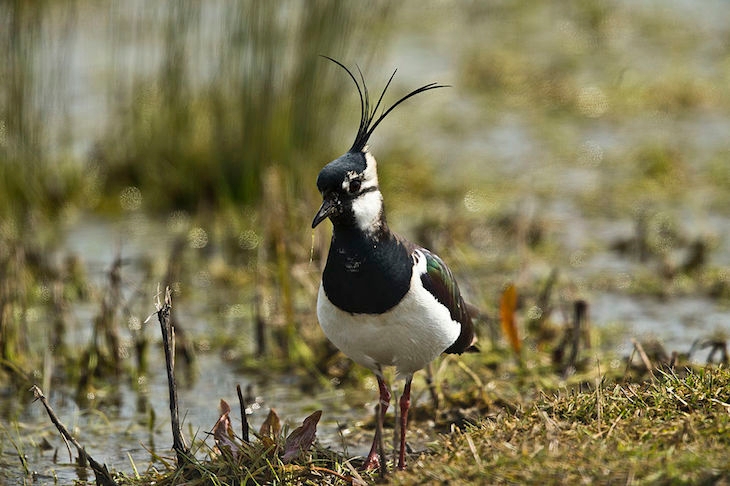On Sunday evening, the BBC presenter Chris Packham took to social media to tell the world that they should support his anti-shooting campaign because declining populations of lapwings are ‘still being shot’. Unfortunately for him, this is utter tosh. No one is shooting lapwings, as Packham acknowledged five hours later in an apology on Twitter. 12 hours after that, a similar retraction appeared on his Facebook page. Yet even now, almost 48 hours on, neither of the original posts have been deleted.
This fixation with the passing of mere hours may sound petty, but in the context of social media 48 hours is a lifetime. Packham has 48,608 followers on Facebook and 175,000 followers on Twitter, all of whom have had 48 hours to see these posts and react. And a reaction is exactly what these posts are designed to elicit; in a classic case of modern animal rights campaigning, they blend celebrity social media presence with a false accusation and a link to a parliamentary petition seeking to ban something.
On this occasion Packham is attempting to remove UK waders from the list of species it is legal to shoot in the UK. Thus far he has included in his campaign images of American woodcock (not a UK wader) and allegations concerning lapwings (not legal to shoot in the UK). More egregiously his campaign ignores the fact that the shooting community is at the forefront of both funding wader-conservation research and creating wader habitat, as decisively argued by the Game and Wildlife Conservation Trust. Perhaps it is not surprising that this particular campaign is faltering.
Maybe that’s why, despite issuing apologies and clarifications, the fallacious lapwing posts remain. They have worked and they continue to work. Long after Packham’s admissions that these posts were misleading, people have continued to respond to them, broadcasting their outrage and the fact they have ‘signed and shared’ the petition as a result of what they have been led to believe. This is important stuff. These petitions have the power to engage (some might say waste) parliamentary time. Not for the first time we find ourselves wondering what happens to signatures on these governmental petitions when they have so clearly been gathered under false pretences.
And why are people so keen to declare they have signed and shared Packham’s posts? Because of credibility derived from his position at the BBC. It has long been asked whether it is appropriate for a BBC presenter to attack the countryside (something Packham has recently declared he intends to continue), but now it must also be asked whether it is appropriate for a BBC presenter to leave false information on social media, under his name, purely to drive up numbers on a petition he is championing?
That these comments appeared ‘under his name’ is another question for the BBC. In his retraction, Packham wrote that the misleading post ‘was posted on this account’, suggesting that he didn’t write it. If this is the case, who exactly is using the BBC presenter’s name to push these campaigns? People follow Packham because they want to hear from the friendly face on Springwatch. Surely they deserve to know who is actually posting – particularly if his accounts are going to be so campaigning so stridently?
The whole sorry episode is obviously embarrassing for Packham, but it is also decidedly awkward for the BBC and the whole idea of parliamentary petitions. As long as the former is giving its onscreen talent free rein to share misinformation and distort the latter, how can either one claim any credibility in the eyes of the public?
Liam Stokes is the Countryside Alliance’s head of shooting.






Comments